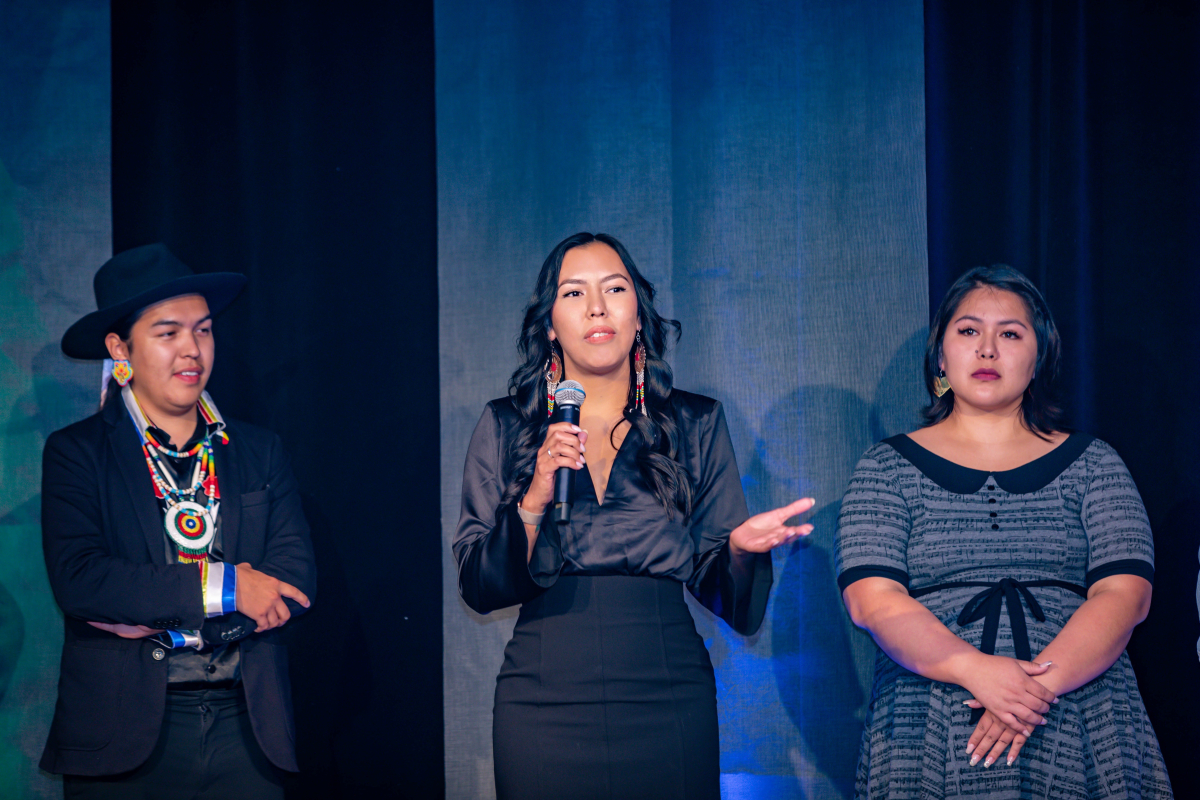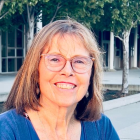Support strong Canadian climate journalism for 2025
These in-their-own-words pieces are told to Patricia Lane and co-edited with input from the interviewee for the purpose of brevity.
Shana Southwind supports Indigenous youth to accelerate the transition to clean energy. This 24-year-old student works at SevenGen, providing mentoring, funding, skill and capacity-building to teams of emerging young Indigenous energy transition leaders.

Tell us about your project.
Every two years, SevenGen brings 200 Indigenous youth from every province and territory together to share their ideas about creating an equitable clean energy future. They listen and learn from each other, Elders and established energy leaders as they workshop their ideas and gain the knowledge and networks they need to turn their dreams into reality. To make the event barrier-free, delegates receive sponsored accommodation and transportation, ensuring all costs are covered. This year, they gathered in Saskatchewan at the Dakota Dunes Resort, located on Whitecap Dakota First Nation territory.
During the pandemic, we conceived of another project, ImaGENation, that sees 12 teams of Indigenous youth enrolled in an 18-month program of mentoring, plan development and cultural support. Each team receives no less than $30,000 in startup funding. Projects to date include sustainable tiny home building, greenhouses for food security in the North, low-emissions boating and storytelling through film. One of my favourite projects will see youth in the Nimkii First Nation near Sudbury, Ont., transition their nation’s land camp to 100 per cent solar and wind power.
That project is an example of my master’s program thesis bridging the gap between mental wellness and relationships to the more than human world, which is so important to Indigenous culture. Many Indigenous communities have programs to allow their members to spend time on the land and water, renewing, relearning and revitalizing their relationship with the land. As an Anishinaabe Ojibwe woman, I carry a sacred responsibility to live in a reciprocal relationship with the land and the water. In this case, we are healing the land as we return to our relationship with it.

How did you come to be working at SevenGen?
As a social worker, I wanted to help connect individual and community wellness to climate change. When I saw an advertisement for the 2019 SevenGen summit, I wondered if I would fit because I don’t see myself as an “environmentalist” and my academic passions are not in science, technology, engineering or maths. But I applied anyway and found that everyone accepted who I was and embraced the strengths that I do bring. My voice was heard and my ideas valued. This is so important because Indigenous people have so much to offer to the conversation about the transition to a better future but we are often dismissed for lacking the education or skills centred in western society. I wanted to help other youth access the program, so I applied to work part-time for SevenGen as I complete my education.
Tell us how the way you were raised shapes your current path.
I am from the Lac Seul First Nation (traditionally known as Obishikokaang), close to Sioux Lookout, Ont. My parents’ home is on the shores of the lake and they raised us to pay attention to the more than human world around us. For example, to prepare for summer, it is important to burn grass — but one must be in relationship with the more than human world around you to know when, where and how to carry out this important life-giving tradition. We prepare to pick berries in the late summer and fall for medicine and food, but this is preceded by laying down tobacco and prayer. To get the timing right, one must know when and where the berries will be best harvested in advance. The land will give us what we need if we respect and listen to it.

What worries you?
My grandmother sometimes tells me not to swim in our lake now because she knows it is sick. I worry that the places I love will not be accessible to my children and grandchildren because we did not take care.
What gives you hope?
I get so happy when I think about Indigenous youth. Their drive, passion, intelligence and growing confidence are making such a profound impact.
What do you see if we get this right?
I see a future that encourages us to ask if each decision we make will benefit the next seven generations. We will have a society that will no longer see the land as a resource but as a relative.
What advice would you give other young people?
Particularly to Indigenous people, I would say: You are not alone in whatever you are feeling. You are beautiful and powerful exactly as you are. Lean into the spirit of your ancestors and the land. It will be your guide.
What would you like to say to older readers?
We carry so much knowledge, insight and wisdom. Do not deprive yourself or the world of it simply because you see us as young.
To everyone, I would say there is much to be learned from reading The Truth and Reconciliation Commission’s 94 Calls to Action and Reclaiming Power and Place: The Final Report of the National Inquiry into Missing and Murdered Indigenous Women and Girls







Comments